Tom Prior interview: ‘To have the freedom to express yourself genuinely is a great gift’
Tom Prior stars as a young Russian private who falls in love with a handsome fighter pilot in the Cold War drama.
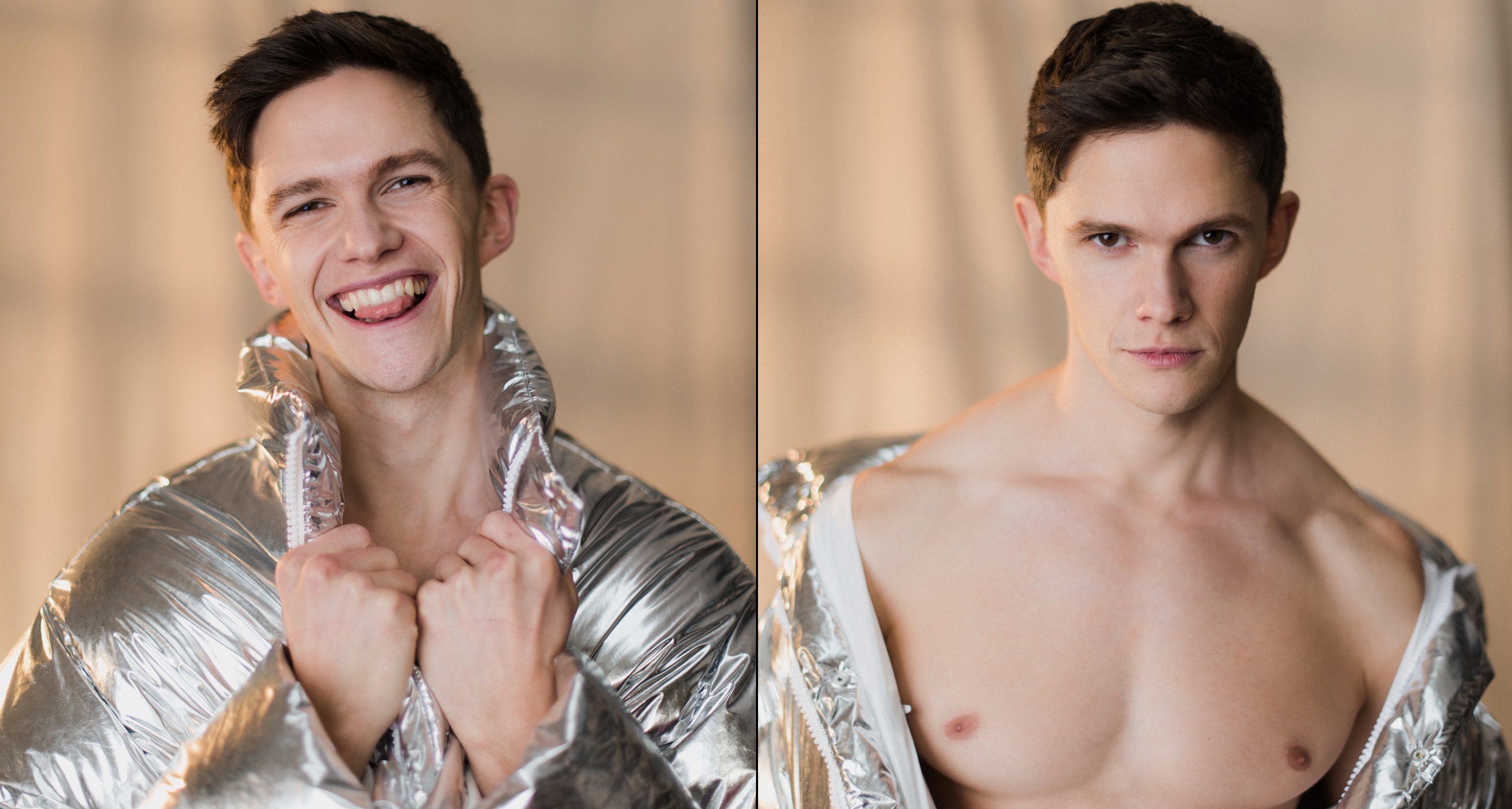
Words: Alastair James; pictures: Pip and Firebird (UK/Estonia, dir. Peeter Rebane)
This article first appeared in Attitude issue 344, February 2022.
Arriving at our photographer’s house freshly trimmed after a trip to the barber’s, Tom Prior grins warmly as I usher him inside. I introduce him to the rest of the team before he’s walked through the clothes we’ve called in for his Attitude cover.
The star of the Cold War-era gay romance Firebird picks out a few pieces before going into makeup. “This is one of the first days where I’ve felt a little bit better,” Tom tells us as he tries on the first outfit (a retro faded double-denim ensemble with bright red trainers providing a pop of colour).
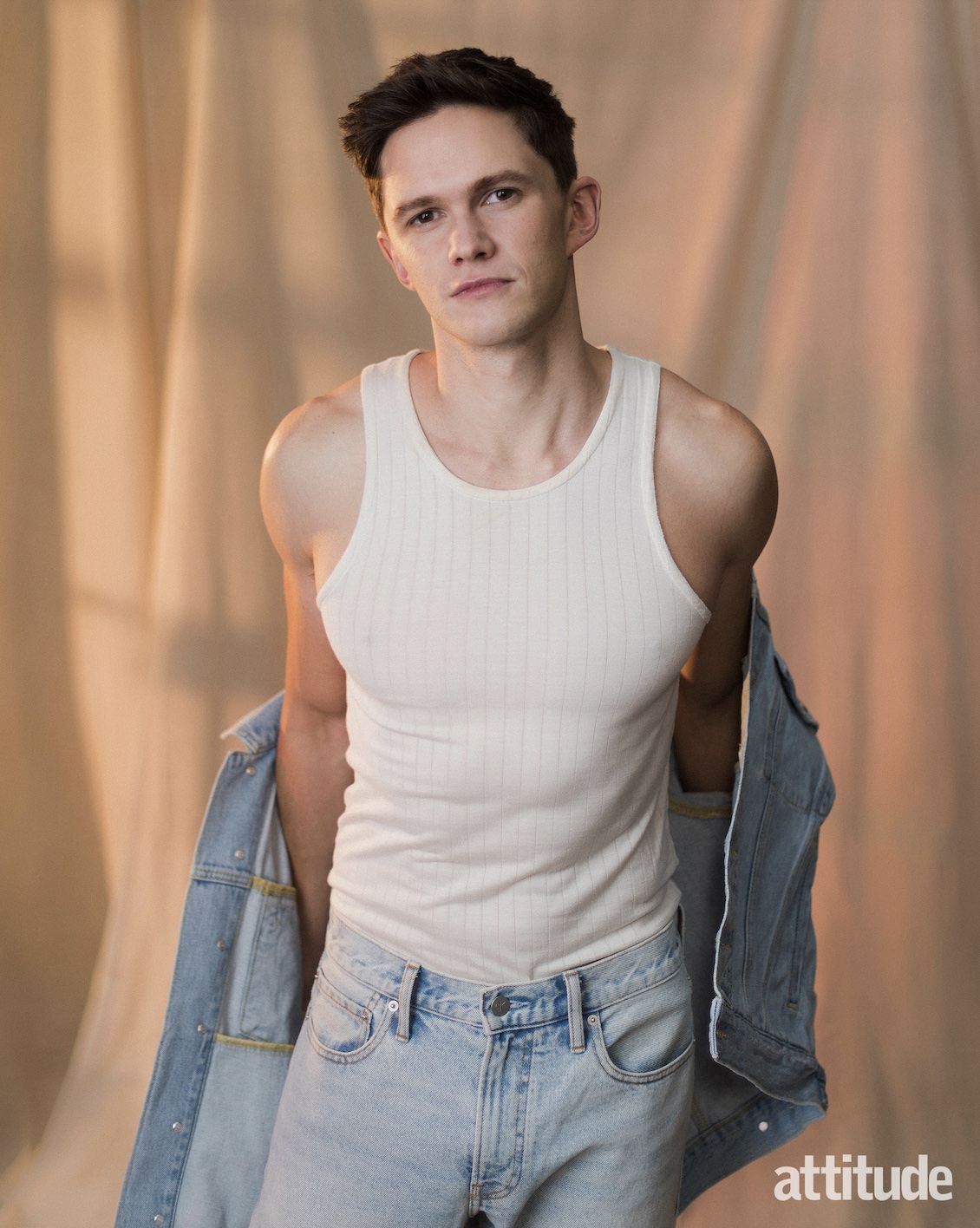
Tom wears tank top by BOSS, jeans by Calvin Klein, denim jacket by Fiorucci
Tom hasn’t been very well for a couple of weeks and mentions that he hasn’t been able to work out much as a result. Unanimously, we all agree that he looks incredible, the closely fitting vest underneath his denim jacket drawing attention to his honed physique.
When the Dorset-born, RADA-trained thesp steps in front of the camera, he takes direction well (he is an actor, after all) and after a few shots begins to ease into it.
Occasionally, his cheeky smile breaks through, lighting up his handsome, angular face. He oozes charisma. Peering at the photographs as they appear on a laptop, I ask if this is his first magazine photoshoot. Tom asks if it’s obvious. The answer is a resounding no.
During a break, Tom tunes into the background music and wonders if he’s heard it in a film before discussing working as a music supervisor on his latest film, Firebird, which he not only stars in but also co-wrote and co-produced. “Too many!” he laughs in response to my disbelief at the number of hats he wore for the production, on which he first started work back in 2014.
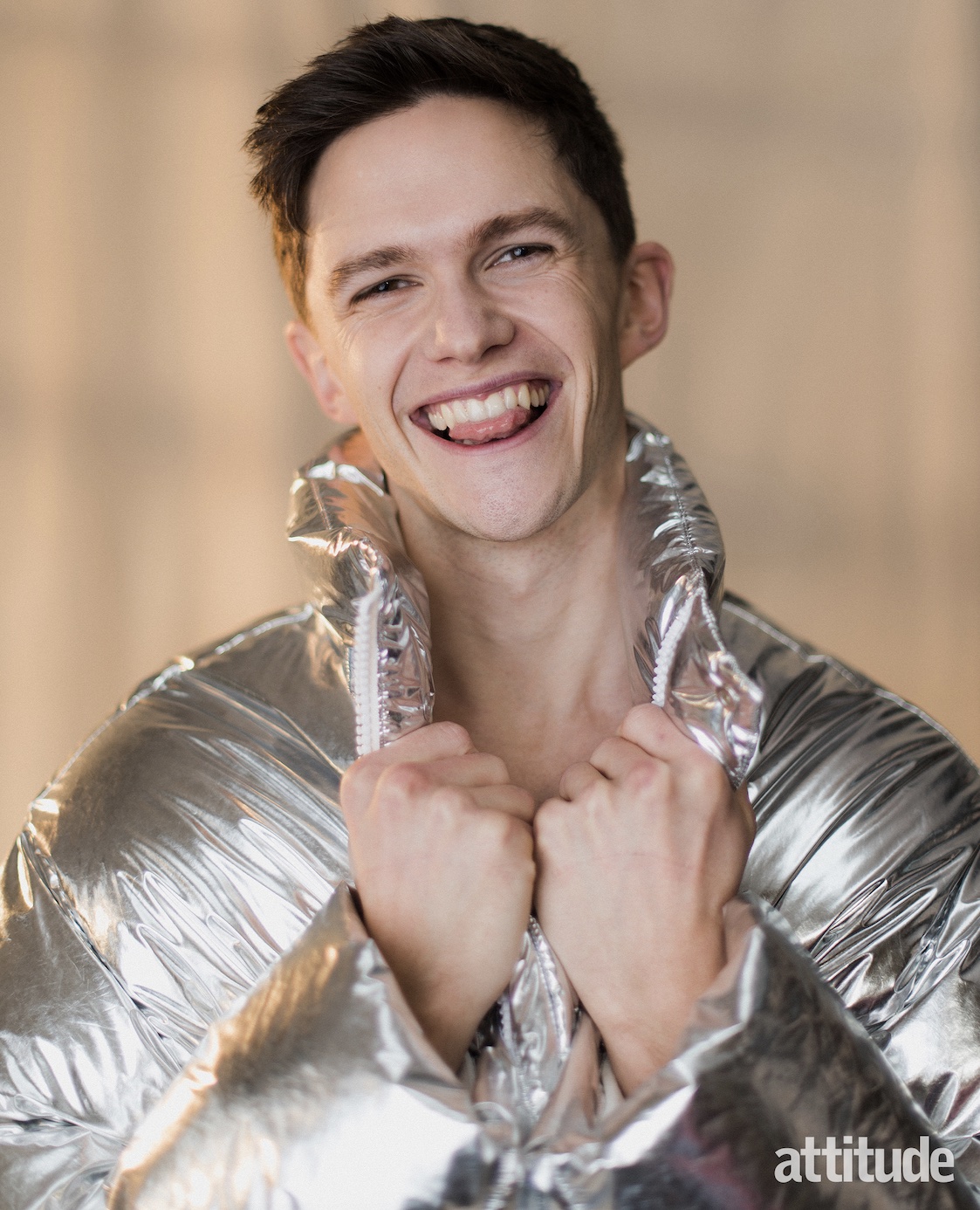
Tom wears puffer jacket by Lanvin
Firebird is an LGBTQ+ love story set during the height of the Cold War in Soviet-occupied Estonia. In it, Sergey, a young Russian private (Tom), meets the dashing and daring fighter pilot, Roman (Oleg Zagorodnii), and quickly a romance blooms. However, things are complicated by Luisa, Sergey’s friend, and secretary to the air base’s commander, with the three entering a love triangle that leaves no one unscathed.
After playing to great acclaim at several film festivals including Frameline, San Francisco’s International LGBTQ Film Festival, and the Iris Prize LGBT+ Film Festival in Cardiff, the movie is due to get its theatrical release in early 2022.
It’s a relief that the film is finally getting a theatrical release, Tom says, as we sit down for his interview. “It’s honestly going to be amazing to have it widely available to so many people because it’s taken such a long time to get to this point,” he shares. “It’s been a very long journey.”
After initially being approached about playing Sergey in 2014 and meeting director Peeter Rebane, the pair shot a three-scene teaser for the film before rewriting the script together and approaching investors. Although they were able to raise the required funds, this took the best part of three years, from 2015 to 2018.
However, an advantage of this, Tom points out, is that it gave them the rare freedom to tell the story as they wanted to without the meddling hands of a cash-obsessed studio. The film was cast and shot in 2018, and then spent all of 2019 in post-production before the process slowed down during 2020 — for obvious reasons.
As well as his first lead role in a film, Firebird marks Tom’s debut as a writer and producer. He explains how his input on the writing side came about organically. “I started making some recommendations to Peeter about how we could improve the dialogue, which he kindly heard me out on. That led to a bit more feedback [from me]. And then he was like, ‘Well, shall we co-write and continue on?’”
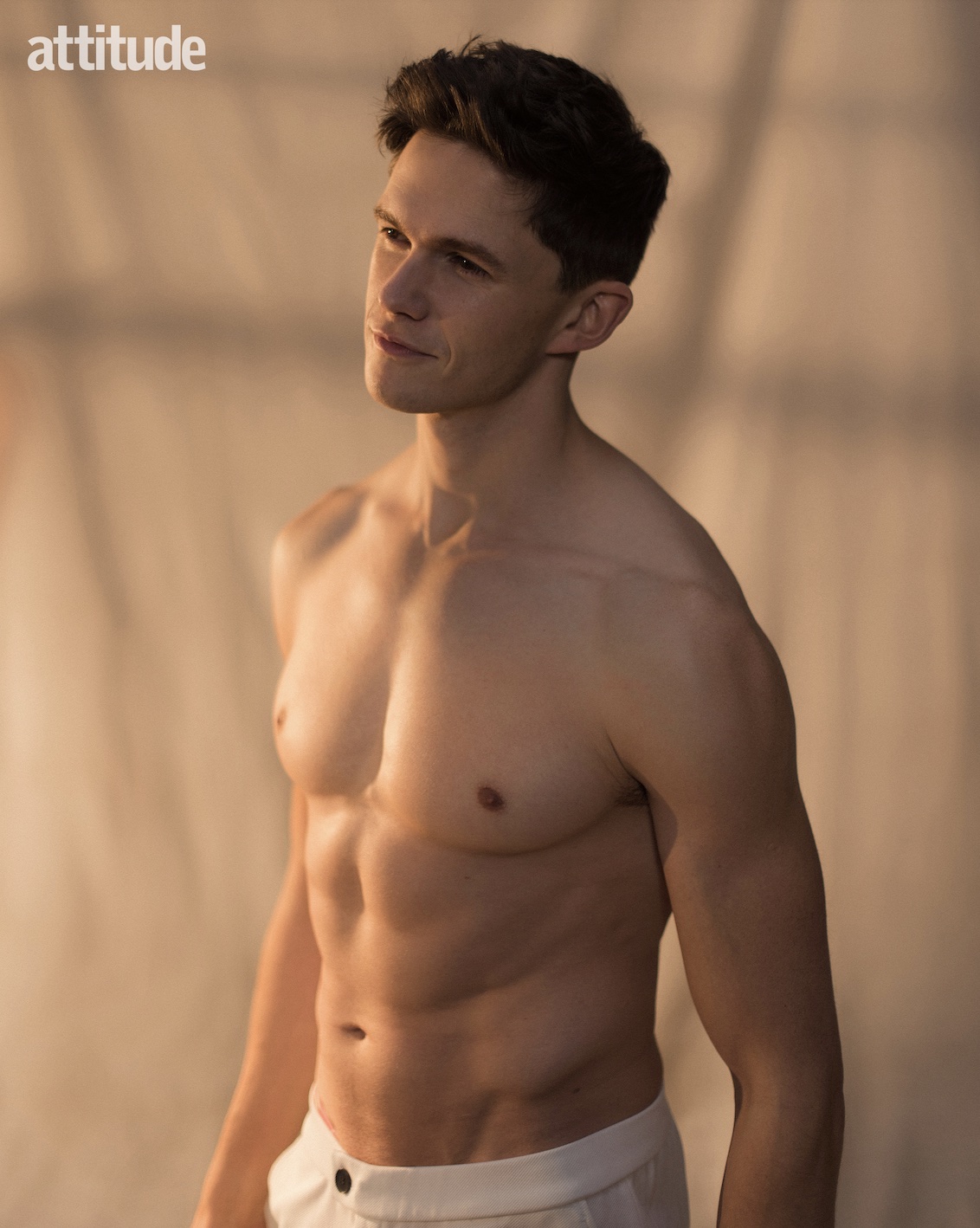
Tom wears shorts by Ron Dorff
Reflecting on the shift from actor to co-writer, Tom tells me that although he doesn’t consider himself a “trained writer”, he’s always had an interest in the craft and knew that he should trust his intuition.
He elaborates, “Probably the biggest thing that I brought as a writer to the project is actually more around size and scale and the thriller element of the story. Not to say that it would have been a better or worse film by any means, but it would have been a much more nostalgic, arthouse-orientated film. I came in and put a bit more action thriller [content] in and also polished up some of the dialogue.”
The story told in Firebird is largely true. Tom’s character, Sergey, is based on a real man, Sergey Fetisov, from Russia, who fell in love with a pilot called Roman during his conscription in the Soviet Air Forces. He went on to train as an actor before documenting his story in the memoir, A Tale About Roman. Sadly, Fetisov passed away in 2017, before the Firebird project took off.
However, during the research and writing stage, Peeter and Tom were able to meet with Fetisov and hear his story first-hand. Playing a real person comes with “great responsibility”, admits Tom. (One of his previous roles was portraying the late Stephen Hawking’s son, Robert, in The Theory of Everything, starring Eddie Redmayne – more on him later.)
And he believes it’s even harder when that person is still alive, as he goes on to highlight the recent example of Ridley Scott’s House of Gucci, which the titular family has branded an “insult”.
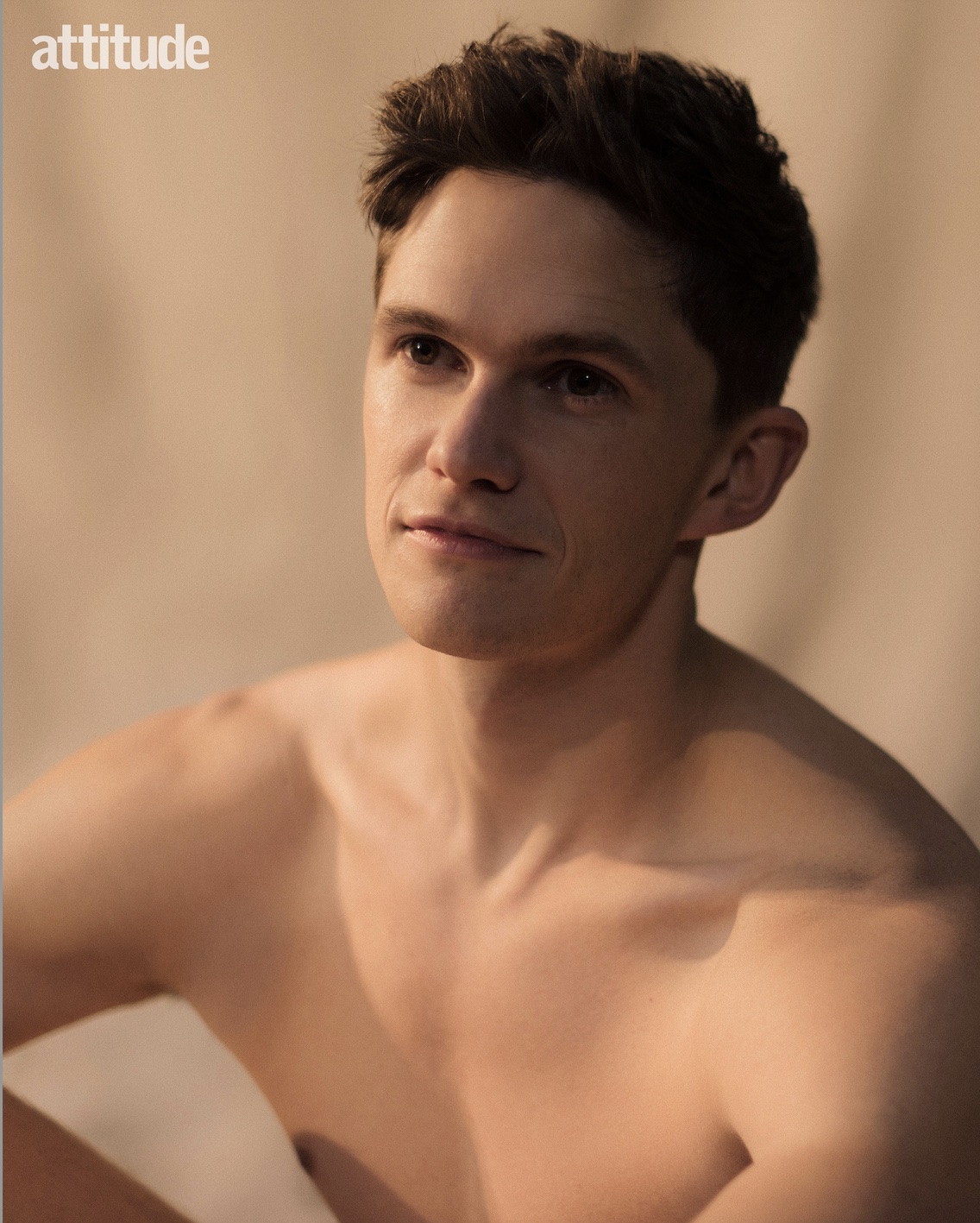
In this case, however, Tom believes that the real Sergey would be happy with the final product. When they met, Fetisov impressed upon Tom and Peeter that this was a story about love, not politics. Inevitably, though, the film has been seen, and will continue to be seen, with politics in mind.
The film comes at a time when the situation on LGBTQ+ rights in some parts of the world is worsening rather than improving. “It shows truth, and it begins to, I think, shine light, and expose where there is still huge progression to be made. I’m honestly shocked by what’s happened in Hungary, for example, and what’s happened in these ‘LGBT-free’ zones in Poland. We’re talking about EU countries, which is kind of mad,” he says.
“I really hope that telling stories such as this causes a greater understanding and awareness and pulls on people’s heartstrings to be, like, can’t we just let people be in love with who they’re in love with?”
With Firebird, Tom was keen to avoid making a film that was based around trauma, a common narrative in LGBTQ+ media. Although he thinks the subject is important, he believes it has been overdone. “So often, [stories] end in the HIV or AIDS epidemic or in heavy drug use and misery, or in these very highly sexualised environments. And I’m just going, like, how many more times?
“I’m fascinated to tell more stories about how, for example, people got together in these types of relationships in Nazi Germany. [I want to] take an extraordinary story and then incorporate LGBTQIA+ narratives as opposed to making it the sole focus.”
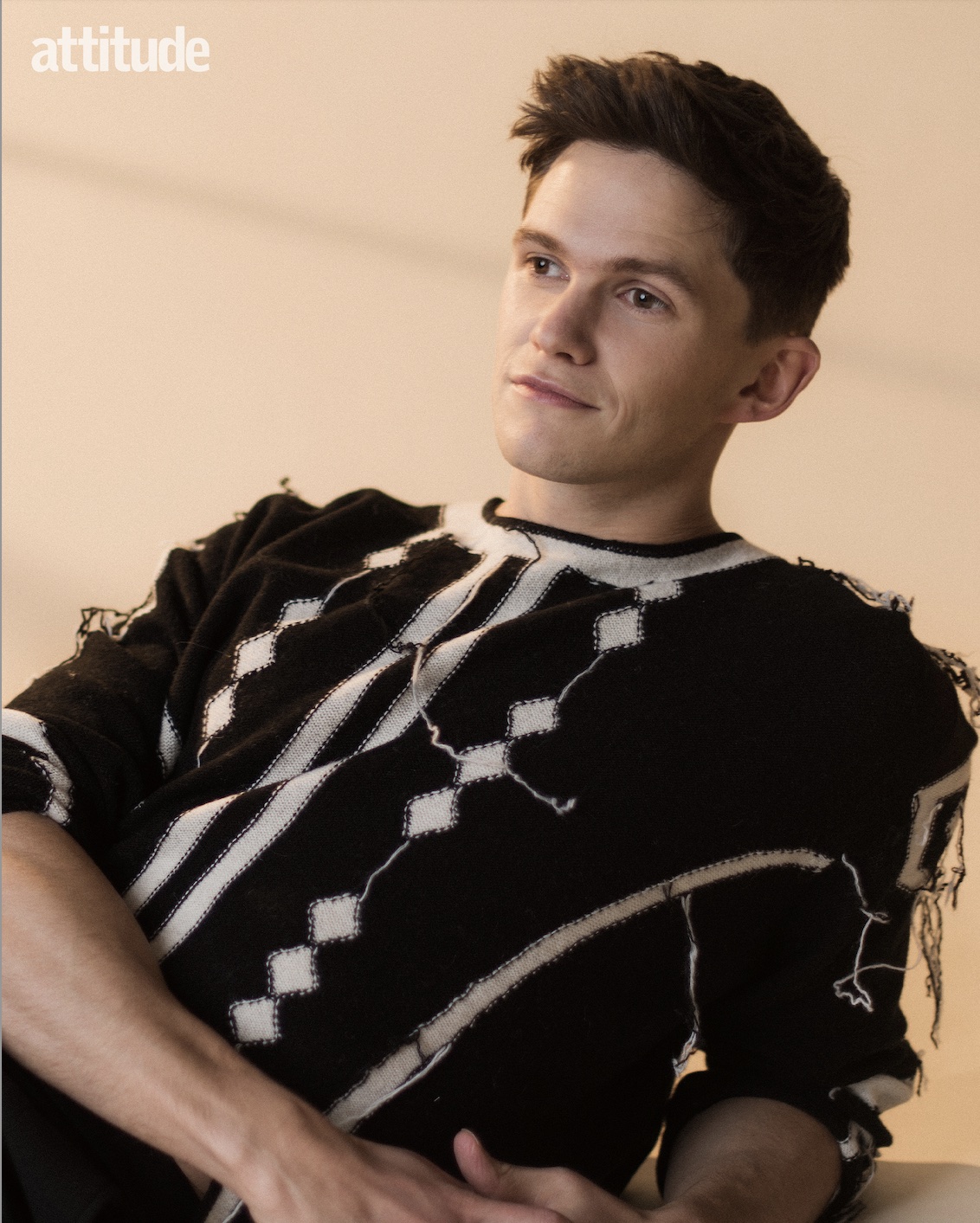
Tom wears knit by Charles Jeffrey LOVERBOY at MATCHESFASHION, shorts by Ron Dorff
Given the film’s subject matter, it has attracted a variety of responses. Although reviews have mostly been good, there has been some negative feedback. There’s also been a fair amount of surprise from audiences, seemingly to do with the movie focusing on a gay romance during the Soviet Union, as well as the true story behind it.
“It’s been amazing to see how many people have said, ‘How was this possible?’ And that was really our main job — to make the original story, which Sergey wrote about, his life, and bring it in line with the explanation around the sociological and political context of the time. Because you read the original story and you’re, like, how is this possible?” says Tom.
“The biggest challenge as the writers of the film was, how do you go about writing situations around a time where there is no language to explain this kind of relationship? You can’t go, ‘What are you into, what’s your preference and what’s your physical position?’ These are all things that didn’t exist in that world. And so, probably the biggest challenge was to make the situations and characters believable and not forced or contrived or highly sexualised.”
Tom highlights how people have been surprised at how unalienating the story is, especially for female audiences. “It’s about what people do to be together. Some of the best feedback I’ve experienced is people writing to me and saying, ‘I’m not part of this community, but as a result of your film, I will treat this community with a greater respect knowing the trials and tribulations that they’ve had to go through.”
Unsurprisingly, the movie has not been as well-received in Russia. The second of two screenings at the Moscow International Film Festival in April 2021 was effectively silenced after negative press, and the film played to an empty theatre.
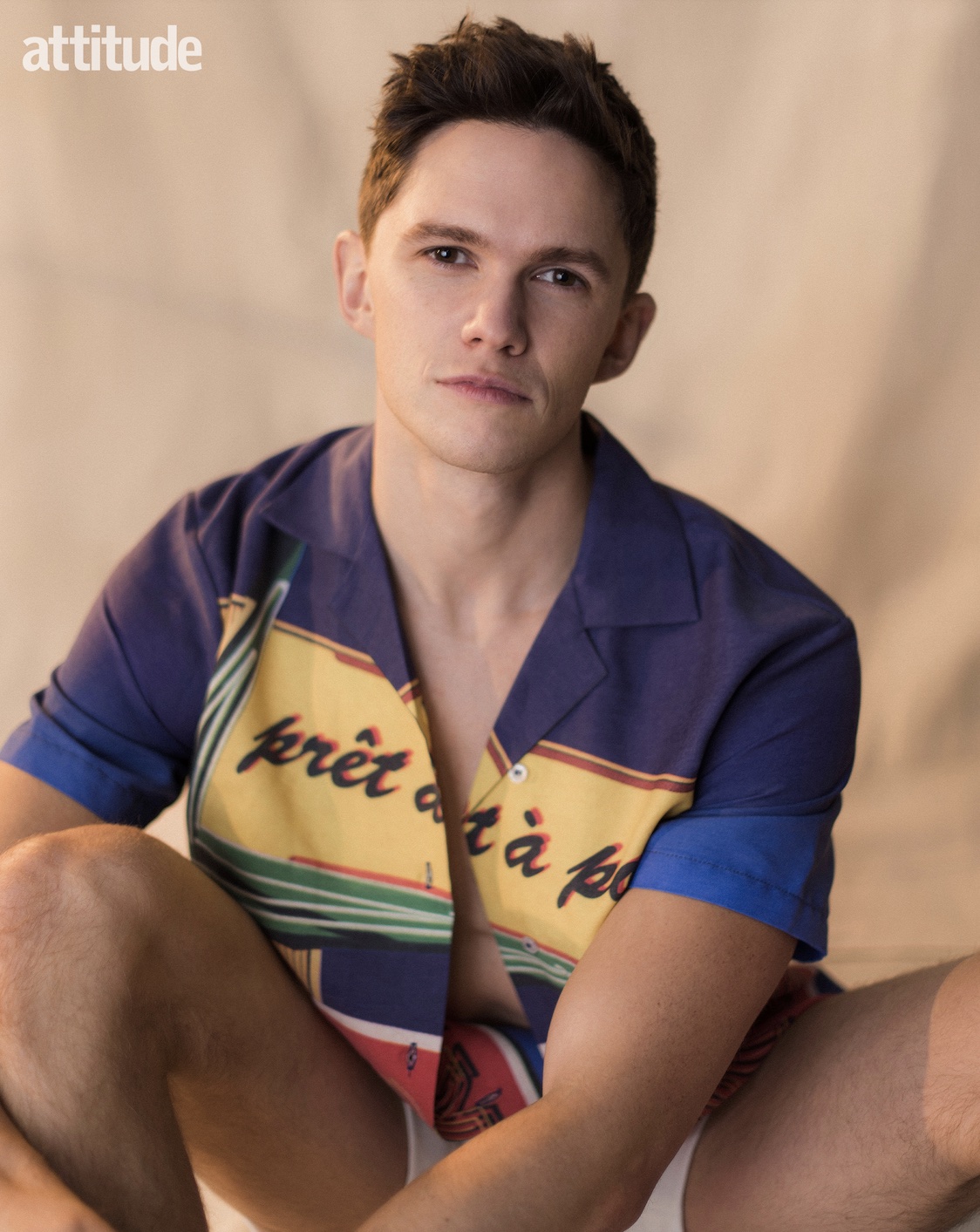
Tom wears shirt by Fiorucci, shorts by Ron Dorff
In November, again in Russia, a screening of the film and a Q&A at the Side by Side LGBT Film Festival was disrupted by anti-LGBT groups. Side by Side’s organisers vowed to keep fighting for LGBT freedoms.
“It’s an acknowledgment of the reality of where things still stand there,” Tom ponders, addressing Russian hostility towards the film. “There’s a whole body of people who don’t believe that LGBT people exist in Russia, which is kind of extraordinary and delusional. But yeah, we’ve been attacked several times via our social media channels with all kinds of intricate ways of how our creative team are going to die and things like that. It’s honestly horrendous, but it’s interesting to have pointed out that it’s a true story.”
Admitting that it’s not easy to move past that kind of noise and that it has caught him off guard, Tom takes solace in living in countries with greater amounts of progression and acceptance. “It makes me so happy to be able to see people of the same sex walking around in the street, holding hands, sharing intimacy. I think to have the freedom to express yourself genuinely is a great gift.”
Currently, Tom is living between the UK and Estonia — he moved there before filming Firebird to carry out research for the project and his main residence is 40 minutes outside the capital, Tallinn. But the long-term plan, he reveals, is to up sticks to Iceland, where he hopes to build himself a home.
For now, however, he’s looking to relocate back to the UK full time. Although he loves the natural environment of the Baltic country, the language barrier gets in the way. “It’s a very complicated language with 14 different cases for every word — 26 if it becomes plural.
“When it comes to dealing with some quite specific things like film language or medical appointments, it can be very challenging and because the country was in Soviet occupation until the 1990s, that means that English isn’t widely spoken with a generation that grew up before then. But I love the very cold winters and it’s very snowy right now. It was about -15 degrees Celsius when I left, and I love that.”
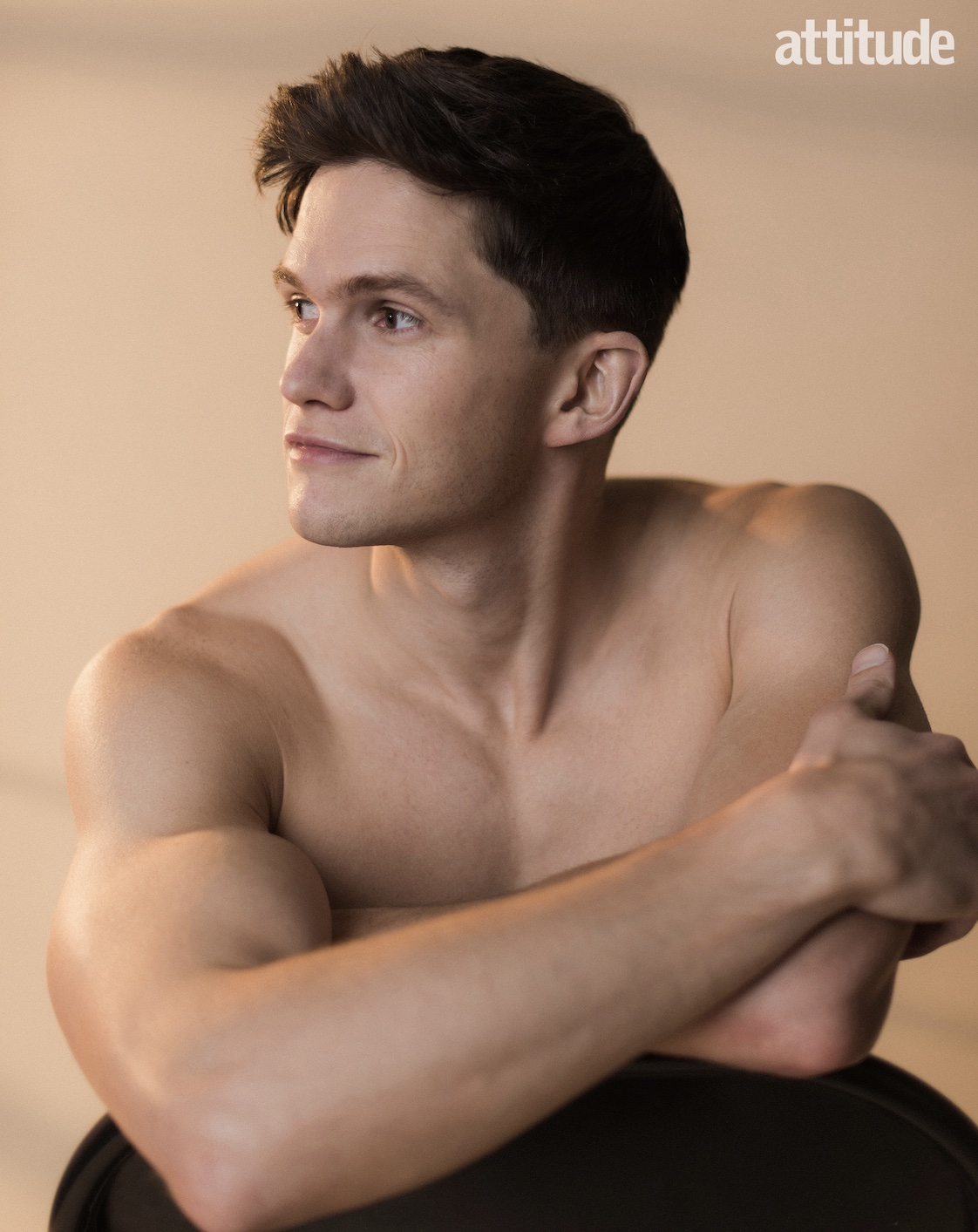
Moving away from the cold, I broach the hot topic of who should play queer roles. When it comes to representing the LGBTQ+ community in Firebird, Tom focuses on whether or not he could convey the truth of the character.
“I don’t know if I could truthfully play somebody in the transgender community because I can’t honestly say what that experience would be like. But if there’s something which I can relate to and I believe I can represent truthfully, then I think all I can do is my best and hope that people believe me,” Tom says.
“I’m a great believer as an actor that the less you know about me the better, because otherwise so much of the reality will inform the decisions in how somebody receives the character. I didn’t feel a pressure per se from the [LGBTQ+] community, but more from the truth of the story which we based the film on.”
Picking up on his view on transgender roles, I refer to Tom’s The Theory of Everything co-star, Eddie Redmayne, who recently said that playing trans pioneer Lili Elbe in The Danish Girl had been a “mistake”. So, what would Tom have said to Redmayne if he could go back in time?
“Do you feel you can truthfully represent this experience? If there’s been something in your life which you believe can help you embody the truth of this experience, then I’d say go and do it. But, if he doesn’t believe he played the situation truthfully, that would have been a situation for me as an actor where I would have gone, ‘This is a phenomenal project, but I believe that you [the producers] need to cast somebody who can actually do a better job than me.’”
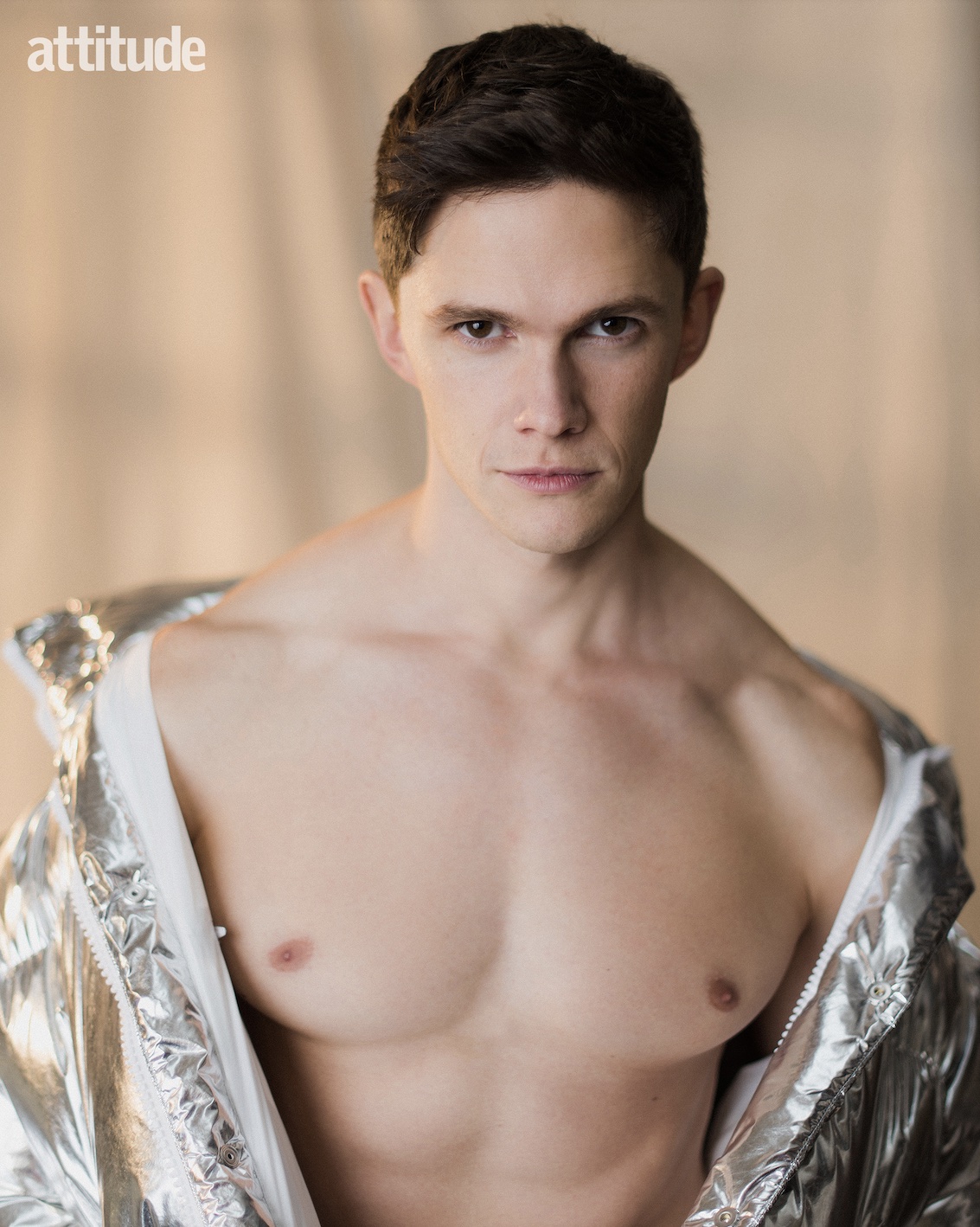
Tom wears puffer jacket by Lanvin
Having said that, Tom also warns that the controversy around representation could potentially work against LGBTQ+ actors.
“I think it’s a very dangerous place to be in to start saying you only cast gay actors to play gay parts, for example, because what’s going to happen if the industry goes: ‘We’re only going to get straight actors to play straight parts’? Don’t get me wrong, that game has been going on forever and so many people have been having to pretend one way or another, or hide out of fear of losing parts. I think that it’s a slippery slope…” he says.
“To an actor who is not out but has had experiences with other people of the same sex, but they don’t identify a certain way, that doesn’t necessarily mean they can’t be the best person for the job. It’s different with trans representation because that’s such a specific and personal transformation. So, I think that it’s [got to be] case by case.
“I think what’s going on right now is very important, how films have to meet certain criteria of diversity, which I think is really important. But at the same time, there can be a backlash to this, which just goes like, ‘Oh, well, they’ve only been cast in this film to fulfil their criteria’. And the trouble is, if the performance doesn’t hold up, that’s when people get upset. So, that’s the struggle which is going on. I think it’s necessary to put in diversity standards. But I think it must be as equally balanced with the talent and the truth.”
It’s a considered, intelligent take on a thorny issue. But I’m not surprised. Throughout the day, Tom impresses me with the extent of his interests, ranging from how US Navy SEALs are financed and trained (spoiler alert: he’s researching it for a story), to whether dyslexia is a superpower rather than a hindrance, and the way GCHQ looks at problem-solving.
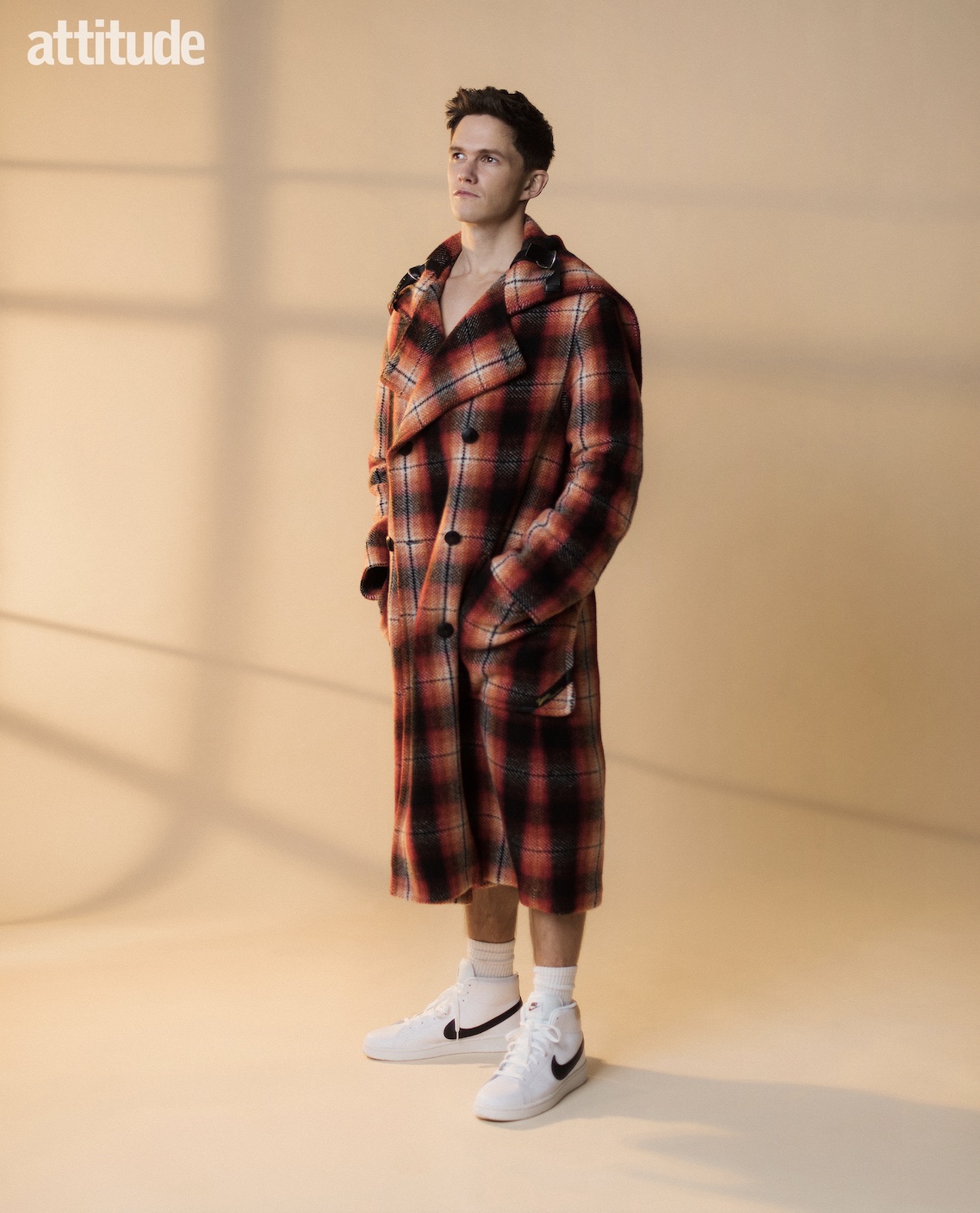
Tom wears coat by Lanvin, socks by SockShop, trainers by Nike at Schuh
On the lighter topic of spies, I ask Tom about the new Bond. With Daniel Craig having just vacated the role of 007, and the world clamouring to know who will be next to pick up the martini glass, I wonder if the role is of any interest…
“I always wanted to play James Bond,” he says, beaming from ear to ear. “If they came along and asked me, then I’d absolutely do it.”
How about superheroes?
“If they came along and said ‘Do you want to play Spider-Man or Batman’… Or ‘Do you want to play somebody who has to struggle with the dark as well?’ Because we all do in life. We all have our perceived awareness of who we can become, and we also have our own darkness and challenges to overcome.”
With this, the conversation moves on to mental health. A quick glance at his Instagram page reveals his interest in meditation and mindfulness.
“The majority of all of our problems come from our beliefs about ourselves and the constant noise which prevents us from believing in ourselves. And it was through discovering meditation and mindfulness that I was able to experience that true light and also to realise that so much of the beliefs are simply but a belief, but a thought.”
As he then goes on to quote both Shakespeare and Einstein in a single breath, I’m once again left wondering if there’s anything Tom doesn’t know, but alas, there’s no time left to find out.
Firebird is out in UK cinemas now.
